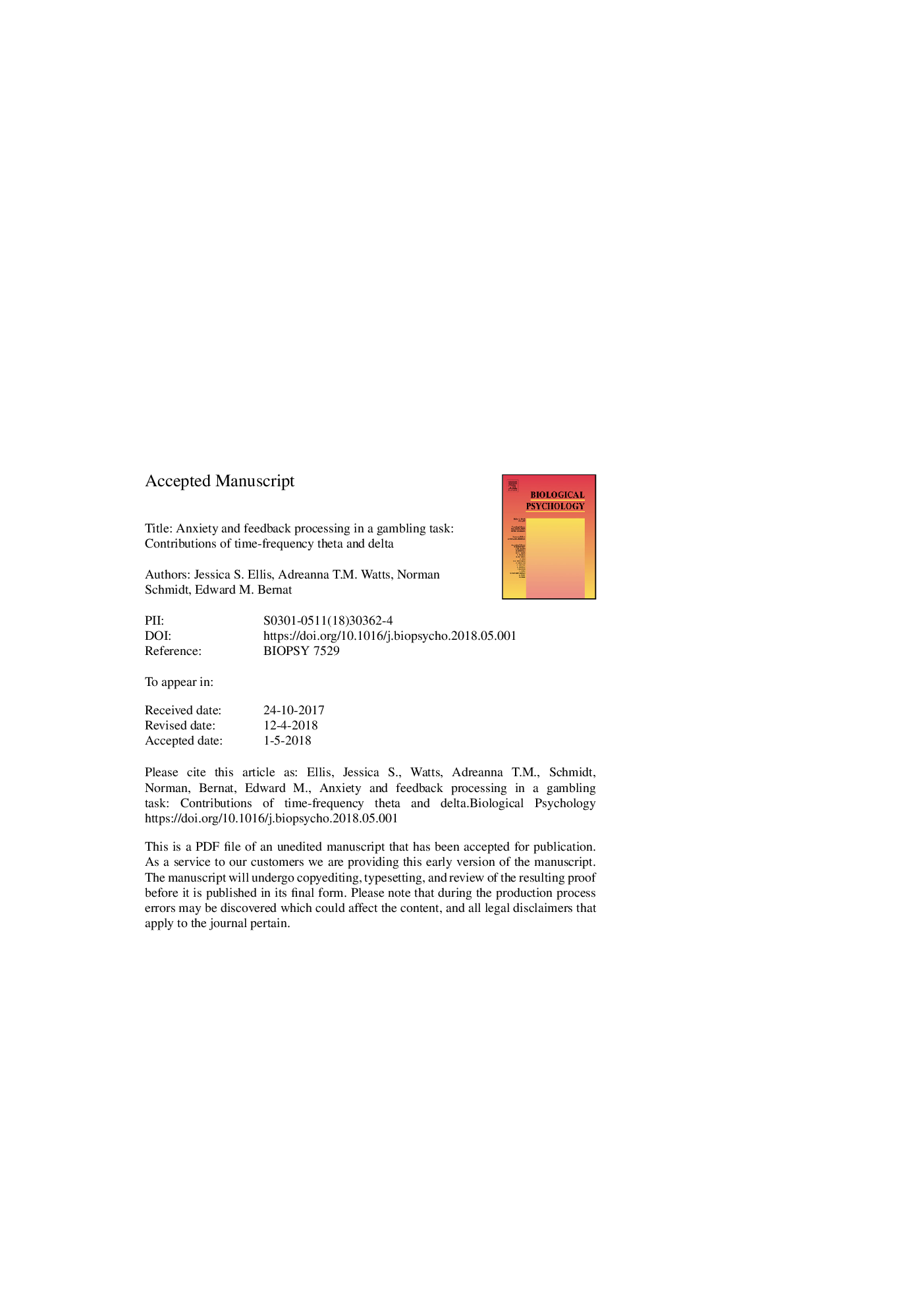| Article ID | Journal | Published Year | Pages | File Type |
|---|---|---|---|---|
| 7278072 | Biological Psychology | 2018 | 49 Pages |
Abstract
The feedback negativity (FN) event-related potential (ERP) is widely studied during gambling feedback tasks. However, research on FN and anxiety is minimal and the findings are mixed. To clarify these discrepancies, the current study (Nâ¯=â¯238) used time-frequency analysis to disentangle overlapping contributions of delta (0-3â¯Hz) and theta (3-7â¯Hz) to feedback processing in a clinically anxious sample, with severity assessed through general worry and physiological arousal scales. Greater general worry showed enhanced delta- and theta-FN broadly across both gain and loss conditions, with theta-FN stronger for losses. Regressions indicated delta-FN maintained unique effects, accounted for theta, and explained the blunted time domain FN for general worry. Increased delta was also associated with physiological arousal, but the effects were accounted for by general worry. Broadly, anxiety-related alterations in feedback processing can be explained by an overall heightened sensitivity to feedback as represented by enhanced delta-FN in relation to the general worry facet of anxiety.
Related Topics
Life Sciences
Neuroscience
Behavioral Neuroscience
Authors
Jessica S. Ellis, Adreanna T.M. Watts, Norman Schmidt, Edward M. Bernat,
